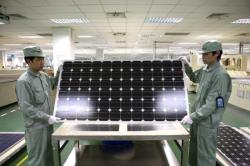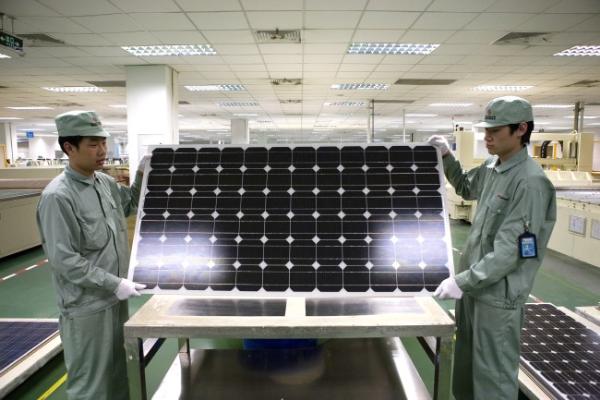
Not quite as cheap as it used to be.
A trade skirmish over solar panels has pitted the U.S. against China. And pitted one wing of the American solar industry against another. And pitted one presidential candidate against another. And here you thought tariffs were boring!
Here’s the latest news from The New York Times:
The Commerce Department issued its final ruling Wednesday in a long-simmering trade dispute with China, imposing tariffs ranging from about 34 percent to nearly 47 percent on most manufacturers of solar panels and cells imported from the country.
For most of the Chinese manufacturers, the penalties are somewhat higher than those announced by the Obama administration earlier this year, when the government determined that Chinese companies were benefiting from unfair government subsidies and were selling their products below the cost of production, a practice known as dumping …
Wholesale prices [for solar panels] have declined by nearly three-quarters since 2008 as Chinese companies expanded capacity and production much faster than the growth in worldwide demand. …
About a dozen panel makers in the United States, as well as a similar number in Europe, have gone bankrupt or closed factories since the start of last year.
Think: Solyndra.
But while U.S. panel manufacturers have suffered from cheap Chinese imports, U.S. panel installers think cheap Chinese imports are just dandy. The San Jose Mercury News explains how the two camps have formed opposing coalitions with vexingly similar acronyms:
The highly contentious trade case began last year when a group called CASM, or the Coalition for American Solar Manufacturing, filed a petition claiming that Chinese solar companies benefit from enormous subsidies like free land and low-interest government loans …
A group called CASE, or the Coalition for Affordable Solar Energy, was formed to oppose the trade petition. CASE members include fast-growing Bay Area startups like SolarCity, SunRun and Sungevity that install solar panels, including panels made in China.
The Hill has the political angle:
President Obama will likely use the decision to back up assertions that he has been tough on China.
GOP White House challenger Mitt Romney argues Obama has not done enough to combat Chinese trade practices.
But Obama has upped pressure on China in recent weeks, first by imposing tariffs on tires imported from China and then by blocking a Chinese firm from buying four U.S. wind farm companies.
Meanwhile, Romney is trying to squash another renewable-energy industry right here at home.



